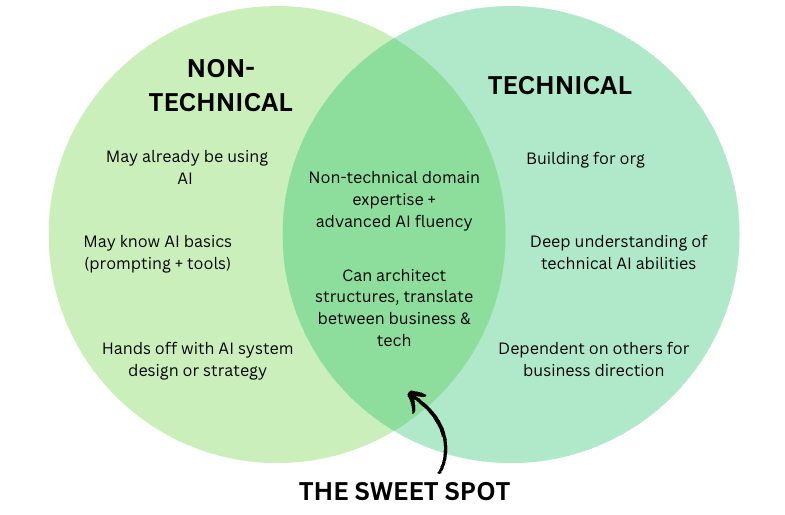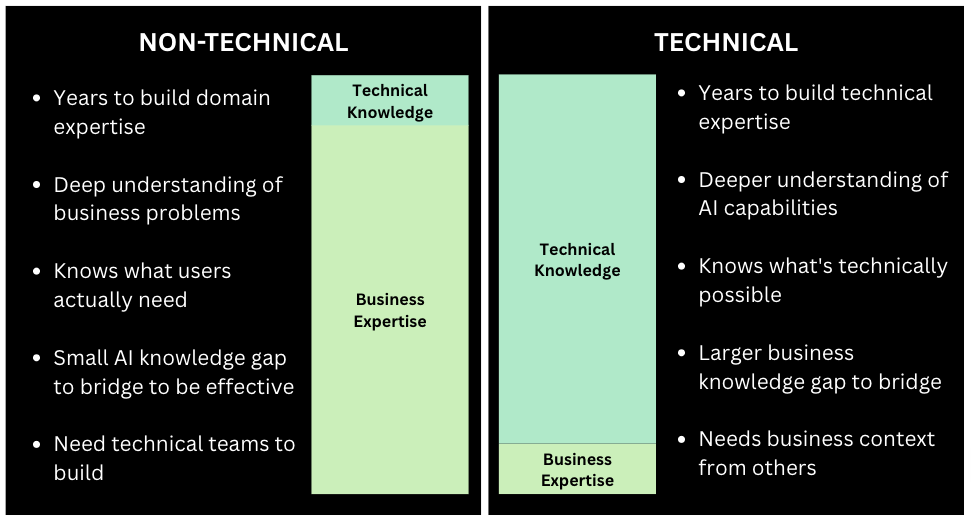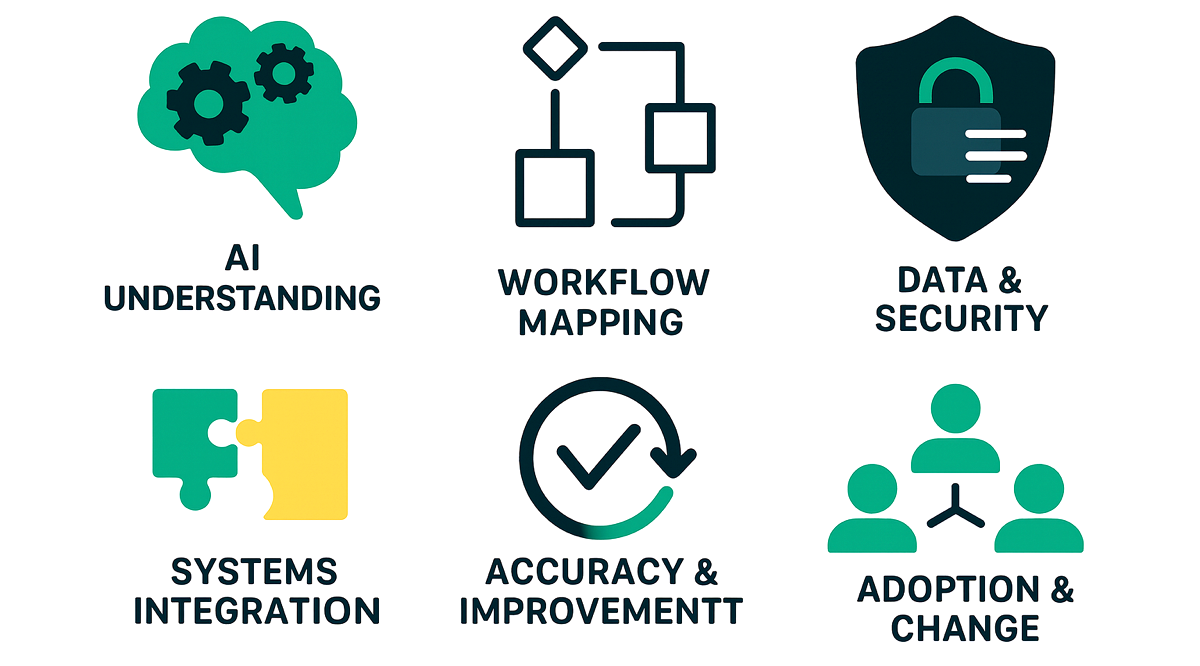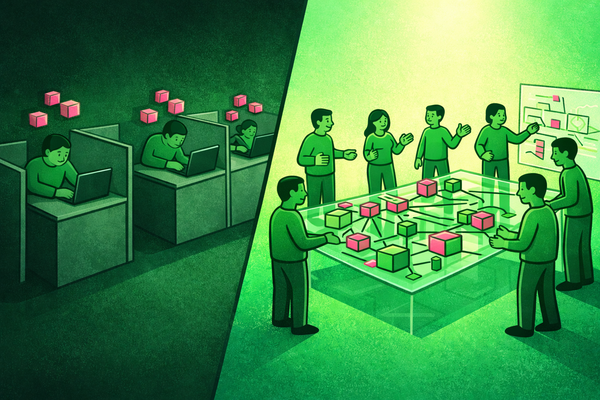[One More Thing] Why Non-Technical Professionals Have the AI Advantage
The case for becoming 'technical enough' to lead AI strategy in your organization.
![[One More Thing] Why Non-Technical Professionals Have the AI Advantage](/content/images/size/w1200/2025/08/TechnicalvsNon-Technical-ChasingNext-Header.png)
I'm sure you've seen predictions of how AI will impact the workforce.
In many of them, there's talk about specialists vs generalists.
One side argues that as AI handles specialized tasks, people will need to become generalists who are good at many things, especially leading AI, without requiring deep domain knowledge.
The other side thinks specialist knowledge will be essential for effectively steering and evaluating AI in complex applications.
Both make a good case, but I think they're missing the actual opportunity.
The early advantage won't go to pure generalists or specialists.
It will go to specialists who become "technical enough" to bridge both worlds.
People are Stuck In Binaries
Just like specialists vs generalists, our default is to think of people as either technical or non-technical.
Aside from a few domains, roles have historically led us this way.
Marketing has clear role boundaries. Dev has clear role boundaries.
Finance, Ops, Design stay in their lanes.
This worked when tech had separate hand-offs and isolated tools.
But truly effective AI won't have as clearly defined boundaries.
In order to capitalize on AI's potential, we need people who can orchestrate AI systems that drive business outcomes.
This begs for historically "non-technical" people to become a bit more technical.
Here's where people fall today and your sweet spot opportunity:

Why Your Business Brain Is Your Superpower
If you're in the left circle, you're actually starting from a position of strength.
In order to capitalize on this, you'll need to break old patterns.
Instead of waiting for your technical teammates to tell you how you should be using AI (historically their domain), you should become the architect of how AI gets integrated into your work.
You have advantages that technical teams can't replicate:
- Problem Recognition: Spot problems worth solving
- Implementation Reality: You understand organizational friction
- ROI Instincts: You think in business value, not technical possibility
- User Empathy: You know what will get adopted and find useful
Here's what makes this even better:
It's far easier for you to learn enough about AI and automation to be dangerous than it is for technical people to develop deep business instincts and specialist knowledge.

Learning AI fundamentals can take weeks or months.
Learning the ins and outs of business verticals and levers can take years.
Even with AI, your domain expertise is a harder-to-replicate advantage.
This is why waiting for technical teams to lead AI strategy is backwards.
You have the context they need to get started, not the other way around.
What "Technical Enough" Actually Means
It's important that we don't get too carried away.
Let me be clear: we still need technical teams. They have tremendous value based on their deep domain knowledge and ability to build technical systems.
That said, I believe non-technical teams should be driving much of the AI strategy.
They understand the business, know the customers, and live in the workflows that need to be redesigned.
The caveat is that surface-level AI use isn't enough to reach that "technical enough" sweet spot.
Using company-approved AI chatbots and AI features that have popped up in everyday tools won't get you there.
You'll need deeper AI knowledge than the rest of the non-technical employees in your organization. Enough to lead the charge on strategic workflow building.
This is exactly the skillset I described for AI Workflow Designers: the most valuable employees companies don't have yet.

- Understand the AI Landscape: Separate hype from reality, know current capabilities and limitations, and match tools to business needs
- Map & Diagnose Workflows: Break down existing processes to spot inefficiencies, bottlenecks and AI leverage points
- Design Secure Data Flows: Plan what and how data moves through the workflow with the help of developers. Their efforts also include protecting privacy and complying with regulations
- Integrate AI into Systems: Work with technical teams to connect AI tools to existing platforms
- Build for Accuracy & Improvement: Know how to build in human review points, quality checks and feedback loops
- Drive Adoption & Change: Prepare teams, run training and manage resistance
You're not becoming a developer.
You're becoming the architect who can design AI systems that solve business problems.
The career path is clear:
Domain Expert → Technical Enough → AI Workflow Designer.
This progression puts you at the center of your organization's AI transformation, translating between business needs and technical possibilities.
Your Next Move
Think about how your team is approaching AI right now.
Is it strategy-first or technical-first?
Many organizations are letting technical capabilities drive AI adoption.
Implementing AI because they know they should be using it and letting technical teams lead the charge because this is historically in their domain.
If that sounds familiar, this is your opportunity.
Be the person who flips that dynamic.
Build deeper AI and automation knowledge.
Start with business needs and work backward to AI solutions.
The technology might not be fully there yet, but when it's ready, you'll be there to lead strategically.
Not a subscriber yet? Join here for weekly insights on AI, strategy, and the changing workplace.
Found this useful? Forward it to a teammate who’s figuring out AI too.





